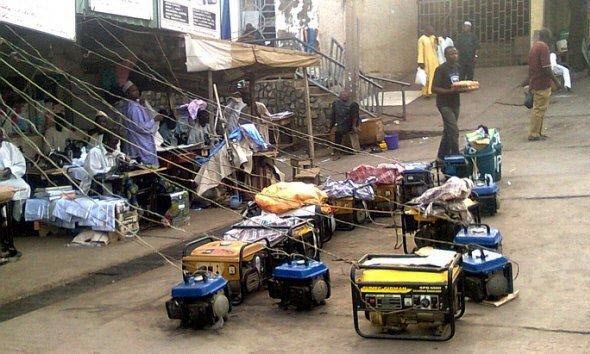There are no products in your shopping cart.
| 0 Items | £0.00 |

 NIGERIANS spend an average of N1.6trn ($4.38bn) annually importing electricity generators as a result of the country's chronic power supply deficit that has resulted in the populace having to generate their own energy.
NIGERIANS spend an average of N1.6trn ($4.38bn) annually importing electricity generators as a result of the country's chronic power supply deficit that has resulted in the populace having to generate their own energy.
Currently, Nigeria is believed to only generate 7,000MW of electricity, of which only about 4,000MW is distributable and only about 40% of the population is connected to the national grid. nationwide, power supply difficulties are experienced around 60% of the time, with residents only getting electricity for about four hours a day in most parts of the country, while blackouts that last for days are not uncommon.
Dr Lawrence Anukam, the director-general of the National Environmental Standards and Regulations Enforcement Agency (Nesra), said that recent statistics from the Centre for Management Development, has revealed that an estimated 60m Nigerians spent about N1.6trn on generators annually. These diesel-powered generators are environmentally unfriendly, noisy and high polluting.
Speaking in Abuja yesterday, Dr Anukam, who revealed these statistics at the implementation of the National Generator Emission Control Programme (NGECP), stated that atmospheric pollution is gradually becoming a serious menace in Nigerian cities. He said that the menace was becoming dangerous in the metropolitan areas, where the use of power generating sets have become an alternative to the power supply.
According to Dr Anukam, a 2016 World Health Organisation report holds that ambient air pollution was responsible for 4.2m deaths worldwide, while it is estimated to cause 16% of the lung cancer deaths. Poor air quality is also responsible for, 25% of chronic obstructive pulmonary diseases, 17% of ischemic heart diseases and strokes and 26% of respiratory infection deaths.
He added that the wide range and indiscriminate use of these generators for both domestic and industrial power supply and the quantum of harmful pollutant such as Oxides of Nitrogen, Sulfur Dioxide, Carbon Monoxide (CO) and partially unburnt hydrocarbons emitted, have contributed greatly to the poor air quality which negatively affects the environment and human health. Nigeria is currently the largest importer of medium size generators in the world.
Dr Anukam said: "Many cities around the world, particularly in developing countries like Nigeria, are experiencing rapid growth, yet in the absence of adequate environmental policy and action, this growth is occurring at considerable and often increasing economic and social costs. The increase in pollution and economic development has escalated the proliferation of industries, use of motor vehicles and the use of generators as alternative energy sources has led to the prevalent worldwide air pollution situation which poses a serious environmental threat globally.
“Nesra in its duties, has the responsibility to enforce compliance with provisions of international agreements and one of such agreement is the United Nations Frame Work Convention on Climate Change, which led to the adoption of the 2015 Paris Agreement. Under the agreement, each country submitted an emission reduction proposal known as the Intended National Determined Contribution at the conference and the president of the Federal Republic of Nigeria, President Muhammadu Buhari pledged that Nigeria would reduce its greenhouse emissions by 20% conditionally and 45% unconditionally."
According to Dr Anukam, his agency has a strategy aimed at cutting down generator emissions under a public private partnership scheme that will involve periodic testing of generators for toxic emissions. He added that it has become pertinent to give serious consideration to the timeframe and the proposal kick-off date of January 2019 for the full implementation of the programme.